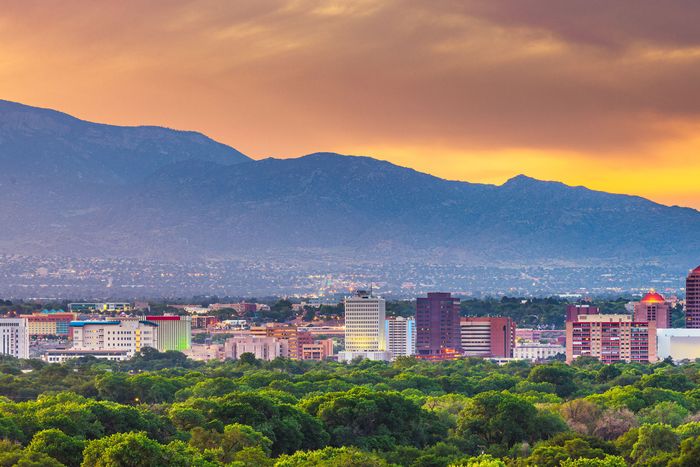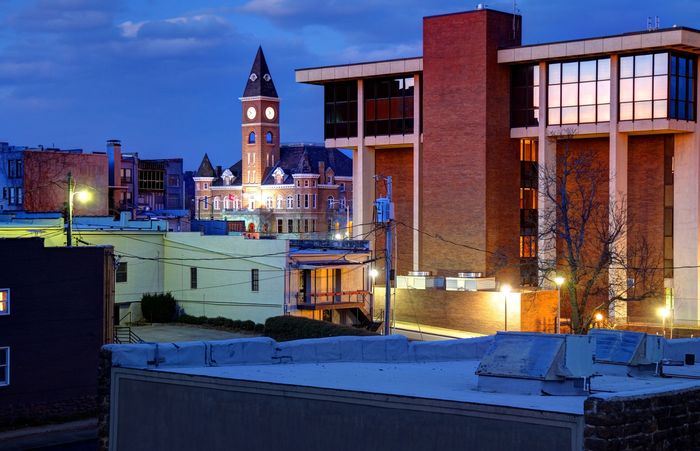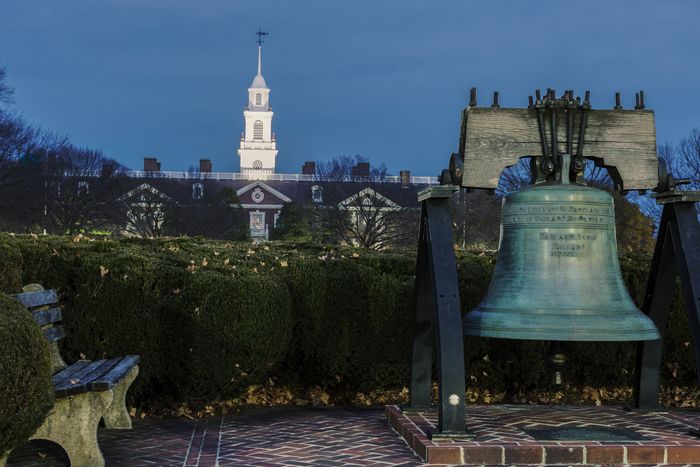Dear MarketWatch,
We own a home in the Sacramento region with $400,000 equity – we owe $255,000 on a home valued at $675,000. I can retire as early as 2029 with about $75,000 in a pension from the public retirement system and healthcare taken care of. The home loan will be about $100,000 then.
We’re a mixed-race family, so we need racial diversity/tolerance. We want views of something, nature or city. We’ll still have two kids in the house then (13, and 11 in 2029), and we’d like a house with four bedrooms so grandkids can visit. And some space for a considerable veggie garden and maybe some chickens and a goat; our current 6,000-foot lot is nowhere near big enough.
We want mild weather (need not be Bay Area mild, but not Phoenix or Missoula either), some snow is OK. But I don’t want to be shoveling snow when I’m 70.
Where should we go?
Ben
Ben,
I admit it – I’m stuck on the goats.
If you don’t want to deal with shoveling snow (that’s what snowblowers, including teens with snowblowers, or contractors are for), are you sure you want to milk goats twice a day every single day? (Meat goats aren’t milked, but they also aren’t as sweet and playful.) If you know all this and are still sure goats are for you, then great.
I’m less concerned about finding a community that allows you to keep a small number of female chickens; heck, they’re even allowed in New York City. Of course, condo boards and HOAs may think otherwise, so be sure to ask each time.
Without the goats, my instinct would be a college town. You’ll get the tolerance, if not always as much diversity as you might want. And since you’ll still have school-age children, that could give you the good schools you want. Midwest college towns are particularly affordable, but the weather might not be mild enough for you.
If that intrigues you, start with Columbia, Mo., suggested here, Iowa City, Iowa, suggested here, and Athens, Ohio, suggested here. Talk to the local animal control officer if goats are a must.
As for your other priorities, let’s start with the view. We all want to live somewhere enticing. But nature and city are two very different things. Are you OK with a smaller town or a rural area to have that view? Or so that you can have goats?
A tip for everyone: dig deep into what you want in your community; the MarketWatch “Where Should I Retire?” tool can help because it lets you pick the criteria that matters most to you, rather than relying on someone else’s list of great places.
Equally, think about what you’re retiring to, not just the job you’re retiring from. Think about how you’ll build your new network of friends. Spend some time testing out your finalists with short-term rentals that let you test out your new day-to-day life.
Read: I went searching for the perfect place to live in retirement — and got lost along the way
Next up, home costs. I’m not going to try to predict whether home prices in a hot market like Boise, for example, will remain on the current trajectory (median list prices up 59% from April 2019 to March 2022, according to Realtor.com) – though goats do seem to be allowed there.
Some reality checks: finding an acre lot in a city will be challenging. Finding that spot for less than what you’ll net from your Sacramento home will be even more challenging – especially if your definition of mild weather includes low summer humidity. A small town or unincorporated area near a city might be the better financial fit if that acre is a must-have.
One possibility could be Colorado’s so-called banana belt; I’ve suggested Canon City here, and here are its rules on goats and chickens. If you want to stay in California, look at Eureka, suggested here. It allows miniature goats.
With the caveat that a lot can change by 2029 – demographics, rules about chickens and goats, even climate – here are three suggestions to get you started. I hate to repeat myself, so you can read all the “Where Should I Retire?” columns here.
Albuquerque, New Mexico

Goats – yup. You’ll get mild weather – more than 300 days of sunshine and perhaps a couple of inches of snow each month in the winter – and it’s not as hot as Phoenix.
Both city and nature views — another tick for Albuquerque, a city of 565,000 people in a high desert landscape. This is a majority minority city (Hispanics or Latinos account for 49.2% of the population, according to the Census Bureau), so it should meet your expectations on diversity and tolerance.
Elevation here reaches 10,678 feet in the nearby Sandia Mountains (take the Tramway from the edge of town), part of the Cibola National Forest. Further south is Manzano Mountains State Park.
Inside city limits, you might take advantage of the University of New Mexico plus spend some time at the National Museum of Nuclear Science & History and the Indian Pueblo Cultural Center.
Overall, about 930,000 people live in the Albuquerque metro area.
The Albuquerque housing market is a seller’s market as of April 2022, according to Realtor.com, which like MarketWatch is owned by News Corp. That could change by the time you’re ready to move. Here’s what’s on the market right now, using Realtor.com listings.
If it’s not quite right, the suburb of Rio Rancho, suggested here, allows pygmy goats. Santa Fe, suggested here and home to the Santa Fe Goat Milkers Co-op, is an hour north.
More on Albuquerque: This 57-year-old said ‘screw this’ to San Francisco — and retired to ‘delightful’ Albuquerque, where she slashed her expenses by 70%
Fayetteville, Arkansas

If the Albuquerque area is too big, here’s another place that allows small goats, Fayetteville, Ark., is home to 94,000 people, and about 560,000 people live in the wider metropolitan area.
This is a college town; the University of Arkansas, with about 29,000 students is here. Those 60 and older can take classes for free. Head to the Walton Arts Center for traveling Broadway shows and more, then explore TheatreSquared. Drive 25 miles north and you’re in Bentonville, headquarters for Walmart. I’ve suggested it here.
Start your school search in Fayetteville with Fayette High School East.
Nature? You’re in the Ozark Mountains.
But you’ll have to decide whether a community that is 77% white, non-Hispanic, per the Census Bureau, is diverse enough for you. The wider metro area is more diverse, but still less diverse than the U.S. as a whole.
Average summer and winter highs in Fayetteville are a few degrees cooler than in Albuquerque. You’d have even less snow, but you’d have plenty of humidity.
A warning: home prices have been climbing recently. Here’s what’s on the market now, using listings from Realtor.com.
You also might want to take a look at Charlotte, N.C., which I’ve suggested here. You’ll need a permit for goats.
Dover, Delaware

State Capitol Building of Delaware. Dover, Delaware, USA.
Getty Images/iStockphoto
If my suggestions so far are more city than you would like, consider Delaware’s state capital: just 40,000 people and diverse. Plus you’d be 15 minutes from the ocean. Camden, a town of about 3,500 just south of Dover, has one of the best high schools in the state, according to U.S. News & World Report.
It quickly becomes more rural once you go beyond city limits. About 185,000 people live in Kent County, the middle of the state’s three counties. The county requires goats to be fenced in; as always, check with the local jurisdiction about their rules.
You could find even more rural – and cheaper – living further south, but at the risk of stressing those city amenities too much, there are no Target stores in the state south of Dover (You will find Walmart, though). Even in Dover, you’re still about 45 minutes from the big Christiana Mall in Newark, also home to the state university.
Delaware has no sales tax, and property taxes are relatively low.
Winter highs here average in the 40s, with perhaps 15 inches of snow, and summer highs average in the upper 80s.
On the housing front, the good news is that the market in both Dover and the county was balanced between buyers and sellers in March 2022, according to Realtor.com. Here’s what’s on the market in Dover and across the county now.
Readers, where should Ben and his family move? Leave your suggestions in the comments section so all can see them.
More from MarketWatch
We want to buy a home on 10 wide-open acres and live on $50,000 a year — where should we retire?
We want to retire to a small mountain town on $18,000 a year — where should we go?










